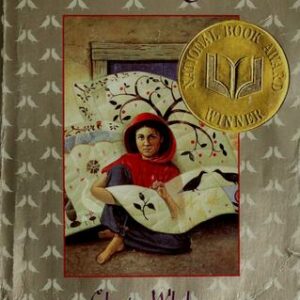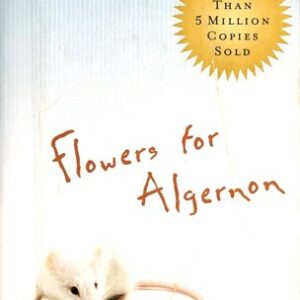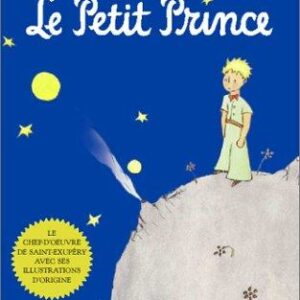Savor
$28.00
| Title | Range | Discount |
|---|---|---|
| Trade Discount | 5 + | 25% |
- Description
- Additional information
Description
A young chef whose dreams were cut short savors every last minute as she explores food and adventure, illness and mortality in this stunning, lyrical memoir and family story that sweeps from Pakistan to New York City and beyond.“Savor is moving, heartbreaking, and defiantly hopeful.”—Mohsin Hamid, New York Times bestselling author of The Last White Man and Exit WestFatima Ali won the hearts of viewers as the Fan Favorite of Bravo’s Top Chef in season fifteen. Twenty-nine years old, she was a dynamic, boundary-breaking chef and a bright new voice for change in the food world. After the taping wrapped and before the show aired, Fati was diagnosed with a rare form of bone cancer. Not one to ever slow down or admit defeat, the star chef vowed to spend her final year traveling the world, eating delicious food, and making memories with her loved ones. But when her condition abruptly worsened, her plans were sidelined. She pivoted, determined to make her final days count as she worked to tell the story of a brown girl chef who set out to make a name for herself, her food, and her culture.
Including writing from Fatima during her last months and contributions by her mother, Farezeh, and her collaborator, Tarajia Morrell, this deftly woven account is an inspiring ode to the food, family, and countries Fatima loved so much. Alternating between past and present, readers are transported back to Pakistan and the childhoods of both Fatima and Farezeh, each deeply affected by cultural barriers that shaped the course of their lives. From the rustic stalls of the outdoor markets of Karachi to the kitchen and dining room of Meadowood, the acclaimed three-star Michelin restaurant where she apprenticed, Fati reflects on her life and her identity as a chef, a daughter, and a queer woman butting up against traditional views.
This triumphant memoir is at once an exploration of the sense of wonder that made Fatima so special, and a shining testament to the resilience of the human spirit. At its core, it is a story about what it means to truly live, a profound and exquisite portrait of savoring every moment. “An exceptional account of the life of an exceptional woman, so talented and gone too soon. Savor is moving, heartbreaking, and defiantly hopeful.”—Mohsin Hamid, New York Times bestselling author of The Last White Man and Exit West Born in Pakistan, Fatima Ali was a chef in New York City. She received her education from the Culinary Institute of America and, at the age of twenty-three, competed in and won an episode of Chopped on the Food Network. Ali was a contestant on the fifteenth season of Bravo’s Top Chef, where she was voted Fan Favorite. She wrote several essays for Bon Appétit, one of which was posthumously awarded a James Beard Award after she passed away in January 2019.
Tarajia Morrell is a native New Yorker who grew up at the table. In 2011, Morrell created the food and travel blog The Lovage. Her reporting and essays have since appeared in WSJ. magazine, T Magazine, Food & Wine, Departures, and Cherry Bombe, among others. Morrell is also the author of Soul of New York: A Guide to 30 Exceptional Experiences. She lives in Manhattan with her daughter. Chapter 1
ITWAAR BAZAAR
Fatima
I grew up in Pakistan, playing cricket, basketball, oonch neech, and pithu gol garam with my brother, Mohammad.
When it was rainy season or too hot to be outside, we canvassed our grandparents’ basement for hints of a world that pre-dated our small brown hands and hungry minds. I idolized my grandmother, my mother’s mother, who I called Nano, a tenacious, fair-skinned beauty whose shalwar kameez always carried with it the powdery rose elegance of Chanel No. 5. From when I was six and we lived with her, I often joined her on her weekly excursions to the Itwaar Bazaar, the Sunday market that unfolded like a circus on a plowed plot of dirt in a skeletal, undeveloped neighborhood in Karachi. At my grandmother’s behest, we set out early, in order not to miss the best produce. While we guzzled water and used the toilet, Nano counted her cash and had Qadir, our family’s cook who had been with us since my mom’s youth, check the boot of the car to be sure it was empty and ready to be filled. Nano ruled the house, our small staff—a member of which delivered us to the market in our Honda Accord, bedazzled with its Italian Momo rainbow steering wheel cover—and our days, particularly in those in-between years when my mom was building her business. Nano was a second mother to me, and it was more than obvious that her prowess in the kitchen was connected to her confidence in the world.
Before we made our way through the rows of stalls—vegetables on one side, fruit on the other—the mazdoors would line up, chests puffed out, shoulders back to imply strength and stamina. In Urdu, a mazdoor is a young boy—probably homeless, possibly orphaned, certainly too poor to attend school—who works as a porter and makes money carrying groceries for wealthier patrons at the market. Past the mazdoors, the farmers sold their produce: lauqat, jaman, lychee, cheekoo, small sweet green sultana grapes; yams, gourds, arvi, and ruby red carrots. The pungent fragrance—a saccharine crushed guava underfoot, wilting greens, the rank damp shirts of farmers who awoke before dawn to haul their loads to town, potatoes with a film of dusty dried soil still clinging to them—made for an intoxicating perfume at once bodily and of the earth. I was supposed to dread these market runs, as all children and most adults did, but secretly I loved them. I followed my grandmother, sometimes pressed right up against her damp silk-draped frame—her sweet signature scent still discernible amid the odiferous hubbub—as she perused the bright stalls, surveying what she planned to purchase, sweat forming rivulets between her shoulder blades and at her temples, which, like all the other matrons, she dabbed with the corner of her dupatta. Who has the greenest beans? The snappiest okra? The onions have to be large but not too large, because those ones are the sweetest.
Produce was selected not just for its ripeness in the moment, but for its future perfection. Nano taught me to feel melons near their stems, that they should be heavier than they appear; to press pears gently; to smell mangos for sweetness to determine their readiness. Then came her masterful bargaining: first mild interest, then an ambivalent How much? No matter what price the vendor told her, it was always too much. Fifty rupees?! she scoffed with feigned horror. Your friend there just offered me the very same dates for forty rupees. I’ll buy them from him. Then she turned gravely on her heel with dismissive finality, but every time, the vendor rushed to her, leaving his stall to block her path, a wagging head and smiling eyes offering her a nicer price. Wait, Baaji Malik, I’ll match his price, but only for you, tell no one, and she’d give a barely perceptible nod to confirm her approval. At the market, my glamorous Nano was notorious and revered, and from her I learned how to shop—to select, to haggle—in that drenched tent, that humid carnival of perishables.
After the produce, trailed by a mazdoor who carried our haul in jute and plastic bags that Nano brought from home, we made our way to the meat market, where we chose our chickens from the specialized stalls that sold only chickens, and from its owner my grandmother once again tried to get the best possible deal. Nano signaled to the butcher which of the birds she wanted from the piled-up cages and he pulled each bird from its cage, rested its feathered neck on a wooden block held between his feet, and slit the chicken’s throat. The blood—thick, crimson and clotted as fresh cream—gushed out into a waiting bucket, and then he tossed the bird, still pulsing, into a large industrial blue bin, lined with feathers and crusted gore of chickens that had come before, where it gave its final thrusts. Hidden behind the tall blue walls of the large drum, the bird became a shadow phantom that rumbled the bin from within. Once it was still, the butcher pulled the chicken’s skin off in one fell swoop, like a mother undressing a sleeping child before bed, and gave us the still-warm poultry to take home and turn into a karahi with a rich tomato base and a fragrant finish of green chili peppers, cilantro, and ginger.
I loved the organized chaos of the market. I tried not to give much thought to where the mazdoors slept at night or what they ate for supper. I would figure out how to feed them someday, I told myself: When I am big, I’ll know how. And I was not sentimental about the birds and beasts who died to become our suppers. It was simply the order of things: brutal but digestible. There I felt exhilarated and at ease.
Back from the market at Nano’s house, Qadir met us at the car to help us unload and carry our plunder to the kitchen. Bags of rice were deposited into the pantry and stored on the cool terrazzo floor. The raw chickens, still warm with life, went into the old 1970s icebox or directly into the sink for Qadir to clean and make into that evening’s supper. Fruit was piled in wicker baskets, where it ripened and tempted us over the days to come, its scent evolving from bitter to honey-sweet. The parlor and entrance of the grand Tanzeem house were intended as the house’s center, but, as with any home, the kitchen was always its heart—the nexus of the most action, aroma, and appetite—and where I needed to be. Kitchens were where the love began. That much was already clear to my seven-year-old mind.
The Tanzeem house was a majestic three-story home on Khayaban-e-Tanzeem, the first street of the Defense neighborhood’s tony prized Phase V, which was developed in 1970 not far from Zamzama Park. My grandfather built it as his dream project, dignified but not ostentatious: the perfect place to coddle his wife, my Nano, raise his offspring, and care for his own father.
“Your grandfather laid those stones with his own hands, Fatima,” Nano told me exactly every time we walked through the foyer together.
Nano never missed an opportunity to reference my deceased granddad: the koi pond he’d insisted upon beneath the skylight in the entrance; the long, graceful lines, devoid of gaudy motifs, that, at his direction, the architects realized throughout; the ten-foot oak front door surrounded by light-giving glass windows, all these were relics of my grandfather’s good taste and prescient vision, she explained.
Nano was often my caregiver in those early years when my mother and brother and I returned from Texas to Pakistan and lived with her, first in Shamshir, the house my grandmother and Saby Khala—my mother’s eldest sister—lived in together after my grandfather’s death, and then in the stately Tanzeem house. I longed to know Nano’s kitchen secrets: the graceful witchery of her ingredients; the mystical logic that fed us. The essential question was already nascent in me: What greater expertise could one possess than to feed those they loved?
“Let me stir it, Nano,” I begged. She discouraged me half-heartedly, lest my small tender limbs be speckled by hot oil or lashed by vicious steam burns. But her concerns for my safety were no match for my conviction, so first Nano brought me a pot of hot water, into which I was allowed to drop cabbage leaves and carrots to make my first “soup.” Upon tasting it and realizing it lacked any complexity (after all, it was only hot water, some salt, and wilted vegetables), Nano brought me a footstool from which I could see inside a pot of golden daal, the better vantage point from which to stir it.
“Hold my hand while you stand on that, Fatima,” Nano instructed me.
“No, Nano. I can do it myself,” I promised her, and true to my word, my brown arms—darker than my pale mother’s and grandmother’s—were never burned in her kitchen. CA
Additional information
| Weight | 1 oz |
|---|---|
| Dimensions | 1 × 6 × 9 in |











